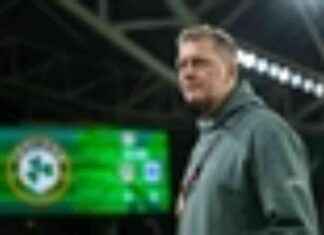I was always impressed by the career of Jacques Delors. He did not have any university degree. However, he was a character of vast culture, exceptional technical knowledge and a privileged political vision.
He began his career as an employee of the Bank of France in 1945, without higher education due to the circumstances of World War II. Of course, he started from an exquisite and recognized training thanks to the solidity and breadth of the high school studies of that time, which he transmitted knowledge far superior to current university degrees and postgraduate degrees. He was also self-taught, dedicated to constant and orderly reading, exercising himself in reflection and achieving a culture that surpassed his knowledge as an economist until he shone as a great humanist.
He was called to teach in the 70s at the most internationally recognized postgraduate center of Public Administrations, none other than the École Nationale de l’Administration Publique (ENA), where the French elite was previously trained. His European political career began in 1979 as an MEP and president of the parliamentary Committee on Economic and Monetary Affairs. Two years later he left the seat when he was appointed Minister of Economy, Finance and Budgets under the Mitterrand Presidency and in 1985 he was appointed president of the European Commission. His term was extended for 10 years.
He became the inspiration for the two most important community reforms: the Single European Act (1986) and the Maastricht European Union Treaty of 1992. He had to deal with great national leaders such as Margaret Thatcher, Helmut Kohl, Felipe González, Mário Soares, François Mitterrand… Some did not share Delors’ federalist ideal, but it is very symptomatic of the recognition of his ideas that they unanimously renewed his mandate, convinced that, despite the differences in the conception of the process, He was the person needed to properly advance European unity.
His taste for reflection and knowing how to listen distinguish him from any other contemporary politician. His tenure was marked by a wise combination of reflection and action. He knew how to get away from the vertigo of daily activity to listen to the thoughts of philosophers, scientists, poets, historians, religious people, municipal officials, etc. to attend the debate of ideas and participate in the serene reflection on the future of Europe. One of those intellectual retreats took place within the walls of the University of Salamanca in 1992, later at the University of Leyden, and in both I had the honor of participating, in those “Carrefour of science and culture.” Also in 1995 I was his godmother when he received an Honoris Causa Doctorate from the University of Salamanca, rejecting honors from other Spanish universities.
He faced problems of the immediate future, but he also knew how to conceptualize and project his political, economic and social ideas into the future, carrying out under his mandate the major reforms that have represented the two great qualitative leaps in European integration. The Single European Act was a wake-up call for European Communities that were languishing in routine. The challenge of perfecting the internal market galvanized public opinion and companies. He mobilized citizens and economic operators, legislators and Public Administrations. The deepening was achieved with the reform undertaken by the Treaty of Maastricht, turning around integration with the great objectives of citizenship, solidarity and the single currency. Of course, this reform awakened a public opinion that until then had been too permissive with integration. Without forgetting that under his Presidency the final phase of the negotiations for the accession of Spain and Portugal took place.
It would not be fair if he did not mention his concern for passionately linking university youth with European unity. And this with science and research with large funds for European projects. During his mandate he encouraged and supported the initiative of the vice president of the European Commission, the Spanish Manuel Marín, to launch mobility programs for students and teachers: the popular Erasmus program created a social network and united closely and visibly the European peoples. Teaching and research on European integration received a visible boost throughout Europe thanks to the creation of the Jean Monnet Chairs.
The Europe that Delors left, its process of unity, has continued to be a task open to many generations. It is a long-term undertaking and also for that reason it is an adventure that cyclically produces fatigue. Maybe right now we lack passion for Europe, we lack the fantasy and enthusiasm of Jean Monet, Robert Schuman or Salvador de Madariaga; or Jacques Delors’ outburst of passion after his reflections in the company of intellectuals. There are no longer any politicians on the European stage who dream of changing the order of things with their trust in the values ??of the EU. Maybe Borrell. For Delors, values ??were the soul and backbone of Europe. He did not hide his anger against the crazy individualism of European peoples and governments or his disgust at the weakness of our democracies in the face of the monstrous nationalist ideology.
European society will owe a permanent debt to Jacques Delors’ exciting contribution to integration. He will be among the founding fathers of the European Union.






